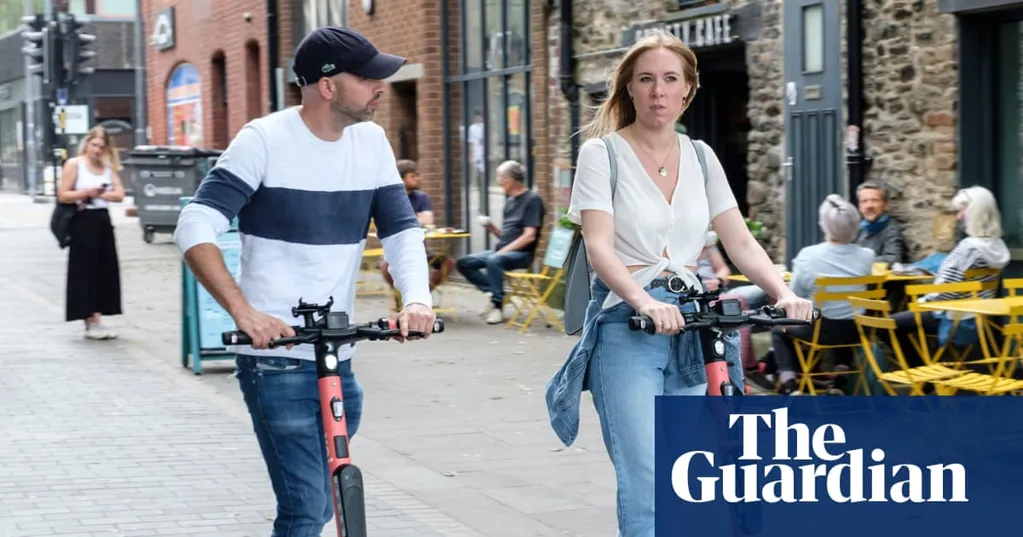Trials of public e-scooter rental schemes have been extended again until 2028, leaving e-scooter firms and users in the UK "in limbo" for an extraordinary eight years of indecision.
Since the authorised schemes started in 2020, several UK operations have folded, including those of the now-merged Tier and Dott, while about 1m illegal e-scooters are estimated to have taken to the streets.
The biggest e-scooter operator, Voi, and its rival Lime welcomed the extension but urged the government to bring forward legislation. Voi said the latest trial period "had to be the last", adding that the uncertainty was damaging investment.
The trials of e-scooters had been due to end in May next year, after originally being launched in August 2020 to run for just 15 months.
The Department for Transport said the trials would now be extended until May 2028 "to help fill evidence gaps and gather new learning around e-scooter safety, the impact of local area characteristics and how e-scooters contribute to meeting new government missions".
New cities and regions will also be able to apply to join the trials.
According to the parliamentary safety body PACTS, data on e-scooter accidents is widely underreported. While public legal rental schemes are regarded as relatively safe, with casualty levels on a par with cycling, illegal e-scooters are frequently modified to go much faster than the 15mph limit, and much more dangerous.
Although hundreds of cities worldwide have embraced e-scooters, Paris notably has banned them, and Italy last year issued strict controls on riders.
Harry Foskin, the public policy manager at Voi, the company that has operated the majority of UK legal e-scooter trips since 2020, said the extension was good news "because otherwise in nine months we wouldn't have a UK business. But our stance on this is that this has to be the last trial."
He said the company had invested about £100m in schemes in the UK, adding: "We've had more than 45m safe journeys in 18 towns and cities across the UK; we’ve proved that these scooters are a safe, sustainable and affordable way to travel. Being in this limbo has handicapped our ability to further invest in the UK and to bring in new vehicles."
Foskin said that the uncertainty had also deterred cities and planners from integrating e-scooters and micromobility into public transport services.
He urged the government to bring forward legislation to make schemes permanent as well clarifying the law around private e-scooters, "to bring in a level playing field on strict standards that we adhere to on power, weight, speed and batteries", adding: "We look forward to working with them through the process."
Hal Stevenson, the director of policy for UK and Ireland at Lime, said the extension would protect jobs and services, but added: "There remains a clear need for long-term legislation to help deliver business certainty and future investment. Our data shows the trials have been a success and e-scooters can be introduced into UK cities safely. We look forward to working with the Department for Transport to get this done."
A DfT spokesperson said: "Safety is at the heart of all e-scooter trials and riding a privately owned e-scooter on public land remains illegal.
"We are extending trials to deepen our understanding of e-scooter safety as we move towards legislating around their use to better crack down on nuisance and antisocial use."
Labour's last transport secretary, Louise Haigh, in November promised that the government would legislate on e-scooters as it "was clearly required. It's not good enough that it's been left in this situation for too long."
